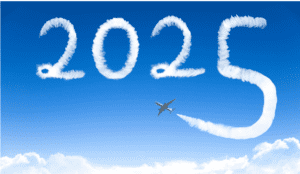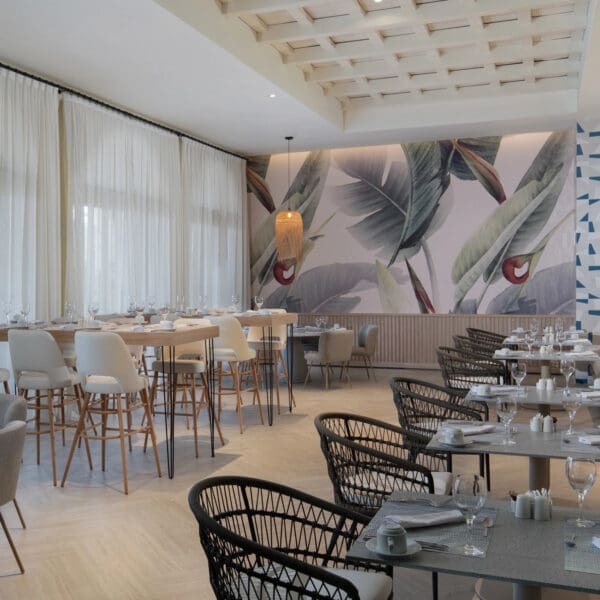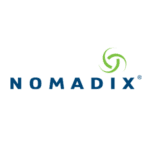
What truly matters to travelers when planning their leisure trips in 2025? And, what insights can the travel industry gain? For the second consecutive year, Sabre, a leading travel technology innovator, surveyed its global team members to discover what travel industry insiders prioritize when booking their own vacations. Combined with Sabre’s rich industry data, the results reveal 10 key trends shaping how we travel this year:
- Multi-tripping: Most survey respondents are planning to take at least two vacations, and a significant proportion are planning four or more leisure trips;
- Travelers from Asia Pacific are leading the way when it comes to 2025 travel plans, with a 34% increase in bookings for the year so far;
- Baby Boomers are the generation most likely to increase their travel budget;
- Travelers are increasingly looking for outdoor adventures;
- Food is a key part of 2025 trips for a significant number of survey respondents;
- Airline quality is most important to younger travelers;
- Booking ease is a key consideration for survey respondents;
- Most travelers like to plan ahead by booking their trips at least three months in advance;
- Travelers are taking trips with extended family to spend quality time together; and
- Sustainability becomes a more significant factor for travelers when they are informed about their potential carbon footprint.
1. Multi-tripping
Why settle for just one vacation, when you can squeeze two into the year…or even five?
In 2025, travel is a key priority, with most respondents planning at least two leisure trips – an increase of 6% from 2024. And, if you’re dreaming of even more vacation time, you’re not alone: close to a quarter of survey respondents are planning 4+ trips, an increase from last year when a fifth said the same. 12% of respondents are gearing up for five or more getaways in 2025, a 2% rise from last year. Only 3% of people said they’re skipping vacations entirely for 2025, a big drop from 2024’s 9.4%.
This trend is also borne out by Sabre’s global travel insights, which confirm the prioritization of travel across the world. There are 9% more air bookings for 2025 (when looking at bookings made from January through September 2024 for travel in 2025), compared with the same time period last year.
“My dad instilled in me a love for travel from an early age, so I understand the desire to explore different cultures and see as much of the world as possible. People are definitely prioritizing their travel experiences in 2025. Dad and I recently visited Iceland and Greenland together, adding a 151st country for him, and my 122nd country, so I’ve got some catching up to do.”
2. Asia Pacific setting the pace
Asia Pacific (APAC) is the travel frontrunner so far for 2025. According to Sabre’s global travel data, there is 34% increase in bookings made by travelers from the region year-on-year (looking at bookings made from January to September 2024 for travel in 2025), outpacing other regions.
Lower airfares in APAC could be one factor driving this growth. Increased air capacity in the region has resulted in fare price reductions of 10% in the first quarter and 5% in the second quarter of 2025, making travel more accessible and helping to fuel demand. A growing middle class in key APAC markets such as India, Indonesia, and Vietnam, is also leading to increased travel.
“Living and working in Asia, I’m privileged to regularly travel across the region to meet with our customers and to see first-hand the region’s remarkable dynamism. What is vital is that agencies, airlines, and the wider travel ecosystem have the scalable technology they need to get the most out of this growing travel demand for their business and their travelers.”
Brett Thorstad, Vice President, Agency Sales and Airline Distribution, Asia Pacific, Sabre
3. Hey, big spenders
With increased travel activity in 2025, it’s no surprise that household travel budgets are on the rise. Over 90% of travelers surveyed are spending the same or more on travel compared to 2024. However, spending habits vary significantly across age groups.
Younger respondents, particularly Gen Z (born 1995-2012), are focusing on budget-friendly options to stretch their travel dollars, with most maintaining a budget that’s comparable to or only slightly higher than last year.
In contrast, many Baby Boomers (born 1946-1964) responded that they are elevating their travel spend, with this generation having the highest proportion of respondents opting to spend significantly more on travel in 2025 than they did in 2024.
“With travel budgets increasing in 2025, hoteliers have an opportunity to capture this increased spending power by delivering exceptional value and tailored experiences. Travelers, whether they’re seeking budget-friendly options or indulging in elevated, luxury stays, want to feel their spending is worthwhile. By using advanced retailing technology and data-driven insights, hoteliers can think beyond the room to exceed guest expectations with experiences that resonate with the diverse preferences and budgets of today’s travelers.”
4. Looking for adventure
The survey indicates that travelers are embracing adventure in 2025, with a growing interest in exploring the great outdoors and participating in sporting activities during their leisure trips.
Cultural experiences remain a favorite, with 46% of respondents ranking visiting the likes of landmarks, monuments, museums, and galleries as their top holiday activity. However, adventure travel is rapidly gaining traction, with close to 30% prioritizing outdoor pursuits and sports while on vacation.
This trend is especially strong among Gen Z, where 73% of respondents cite sports and outdoor activities as their preferred vacation activity. While Gen X (born 1965-1979) and Gen Y (born 1980-1994) incorporate more child-friendly activities into their plans, the focus on adventure resurges among Baby Boomers, who perhaps have more freedom in how they spend their time on holiday, with 45% of respondents emphasizing the importance of outdoor and sporting experiences in their travel itineraries.
“As we move further through 2025, our survey indicates that adventure travel is experiencing remarkable growth across generations, from Gen Z seeking adrenaline-filled activities to Baby Boomers rediscovering the great outdoors. This shift highlights a broader trend: travellers today are prioritising unique, meaningful experiences over traditional itineraries. Sabre is at the forefront of supporting these adventurous needs through innovative solutions such as our AI-driven Lodging AI and Shopping AI tools, as well as our multi-source content platform – technologies that empower the travel industry to deliver personalised, seamless options by dynamically analysing traveler preferences, integrating diverse content sources, and simplifying booking workflows.”
5. Building up an appetite
It seems all that adventure and activity is fuelling a growing appetite for local delicacies while on vacation. The old saying that the “way to a person’s heart is through their stomach” holds true too for travelers, with food set to play a central role in the travel experience for 2025, according to Sabre’s survey. Culinary experiences are especially important to Baby Boomers, with 27% identifying food as their top vacation priority.
This focus on food isn’t unique to Sabre’s findings. Research from the IMARC Group highlights the booming culinary tourism market, which is projected to reach $4.2bn by 2033 – growing at an impressive rate of over 14% annually from 2025 to 2033. Meanwhile, according to the Hilton’s 2025 trends report, more travelers are focused on food.
“For me, food is so much more than just sustenance on vacation – it’s a gateway to connection. Whether it’s bonding with family during a cooking class, or sharing a meal made with locally grown ingredients, food allows us to immerse ourselves in authentic experiences and build meaningful connections with the communities we visit. It’s these moments that create memories and deepen the joy of travel. That’s why it’s so important that Sabre is delivering the technology the travel industry needs to create the personalized experiences travelers want.”
6. Airline quality matters to younger generations
When it comes to booking a trip, it’s no surprise that cost, destination, and activities rank as the top priorities for travelers.
However, an interesting trend emerges among younger travelers: although they aren’t significantly increasing their travel budget for 2025, they place high importance on airline quality. Nearly 10% of Gen Z respondents identified the quality of the airline as a key factor in their decision-making, with a notable portion of Gen Y travelers echoing this sentiment. This emphasis on airline quality presents an opportunity for carriers focused on enhancing service and fleet standards.
“When choosing their airline, it’s clear that it isn’t about a ‘race to the bottom’ for the lowest price. Instead, passengers are looking for a quality experience from their airline. But, what quality means for one person isn’t the same as for another. That’s why personalization is so important. We launched our new retailing platform, SabreMosaic, for airlines in 2024 and are continuing to add capabilities in 2025 so that airlines can tailor the experience in a way that makes sense for their passengers and their business.”
7. Booking ease
The survey indicates that booking ease is particularly important to Gen X and Gen Y, indicating a strong opportunity for the travel industry to create a more seamless, tailored way to book travel. Those traveling with children responded that they are also more likely to book a tour package than other types of traveler; likely valuing the convenience and structure these packages provide.
“Today’s digital native traveler has endless options for how and what to book. All that choice can quickly become overwhelming. Just as we don’t want to scroll endlessly through every movie on Netflix, or every product on Amazon, travelers want confidence that they’re being presented with the best options for their needs without looking at everything themselves. Now is the opportunity for travel agents to curate the perfect trip. To do so effectively, travel agents need advanced technology to sift through the vast array of options and present the most relevant ones to their clients. That’s why we developed our multi-source content platform to solve content fragmentation, empowering agencies to compare, shop, book, and service all types of travel content with ease.”
Madhavan Kasturi, Head of Global Solution Engineering, Sabre
8. Early bird bookings
Booking windows—the time between booking and travel—can show traveler confidence, with longer windows reflecting greater optimism. However, a longer period between booking and date of travel doesn’t necessarily mean more travel; this might simply reflect changes in when people are choosing to book their 2025 trips.
Sabre’s research shows 52% of survey respondents purchasing flight tickets three to six months before departure – a 14% increase compared to the same period last year. Meanwhile, 14% of travelers are booking at least six months in advance, marking a 4% uptick.
Global booking data from Sabre echoes these trends, showing the most significant growth in bookings made even further in advance. In particular, travel planned for October 2025 is showing a significant uptick, most notably for travelers booking from APAC who are planning trips around the Golden Week travel period in China, where a number of public holidays come together to provide a full week off work.
” The managed travel category remains important, and the travel industry’s success – both for our supply partners and our travel advisors – will hinge on capturing demand early by delivering relevant and personalized content to end travelers. Platforms like Sabre Content Services for Lodging, including products like Lodging Retailer and Lodging AI will play a pivotal role in this, utilizing advanced machine-learning capabilities from Google to tailor lodging, car, and rail options to meet traveler and agency preferences with precision and confidence.”
9. Family first – traveling with extended family
Most respondents are traveling with children, followed by those traveling as couples. However, the survey results indicate that there is a significantly higher percentage of respondents in Latin America and the Caribbean (LAC) as well as in North America who are looking at trips with extended family.
This trend is mirrored in other industry research. For example, Beaches Resorts and Censuswide found travelers are prioritizing quality time with grandparents and extended family interactions on vacation. Their survey found 69% of parents would like grandparents to join them for more vacation time. Meanwhile, research in Asia by Booking.com found 47% of families value bonding time as the top benefit of intergenerational travel.
Sabre global booking data also shows that multi-person bookings are seeing a year-on-year boost, with group bookings for seven people showing a 14% increase, and for eight or more people, the increase is close to a quarter at 23% (bookings made from January through September 2024 for travel during 2025).
10. Sustainability counts – when it’s visible
Sabre’s survey suggests that sustainability is playing an increasingly important role in travelers’ decisions, especially when clear information is provided. While cost and convenience remain top priorities, Sabre’s survey highlights the power of awareness in shaping sustainable choices. When presented with data on lower-emission options, 54% of respondents said they considered carbon emissions in their decision making. Among them, over 5% said they would choose the most eco-friendly flight even at a higher cost, while 49% said they would favor lower carbon-emitting flights when prices were comparable to other options.
“These findings have illuminated a powerful truth: sustainability matters when it’s visible. Our survey results highlight the growing influence of sustainability information on travel decisions. While cost and convenience often take precedence, travelers are increasingly open to making more eco-conscious choices. By providing transparent data on carbon emissions, in Sabre’s case, sourced from the Travel Impact Model, we can empower travelers to make informed decisions that reduce their impact on our planet. It’s clear that sustainability is no longer a niche concern; it’s becoming a mainstream consideration, and we have the opportunity to lead the way.”
As the survey indicates that travelers are embracing more journeys, allocating bigger budgets, and approaching the rest of 2025 with increased confidence, the focus on meaningful experiences, quality family time, and sustainability continues to grow. Travel is an important priority, and delivering on these expectations requires intelligent, open, modular, and scalable technology to anticipate and respond to evolving trends. By embracing the right tools, the industry can provide the tailored, seamless experiences travelers seek – ensuring their trips are as fulfilling and memorable as possible – for 2025 and the years ahead.



















